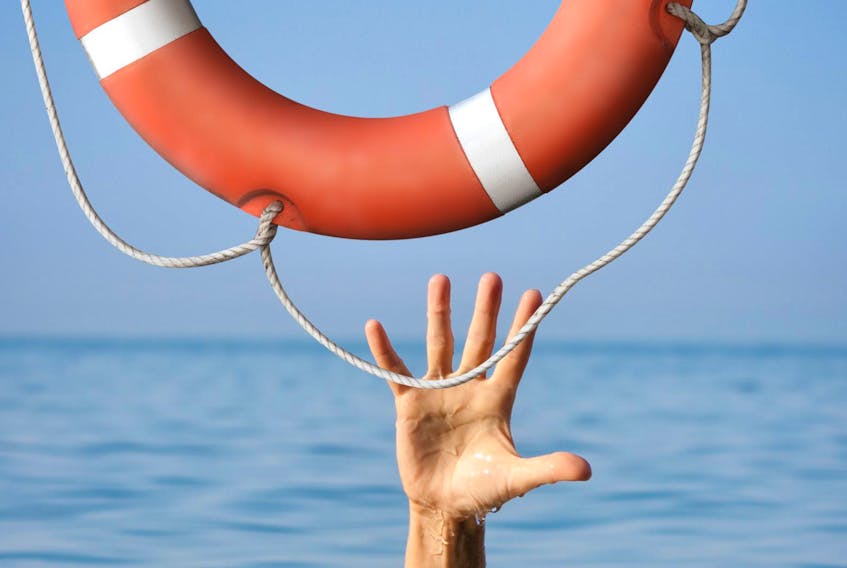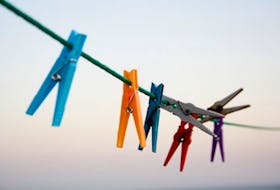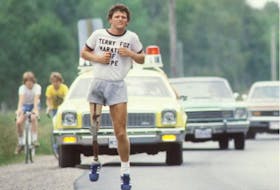September is Suicide Prevention Month. Contemplating suicide is something I am familiar with. Only twice.
"Only."

You only get a chance to succeed once. Only the person who does it knows why they did it, and only the loved ones left behind can learn how to cope with it.
This last one is easier to say if you haven’t been there, and I haven’t, but I have some insight from the other side. Sharing it is what I can do to help.
There are different types of suicide. Japanese soldiers took their own lives rather than be captured. For them, it was for honour. Suicide bombers believe they will be a special place in Paradise. In some cultures, old people decide when it is their time to go and go into elements that will kill them. Some people just stop eating.
Some suicides and assisted suicides happen because it is preferable to whatever you’re living with or what you know is coming.
Celebrity suicides baffle people. After all, they’re living the dream, the good life.
Sometimes, I compare depression with drowning.
I loved watching Anthony Bordain. I thought he had life by the tail, travelling all around the world tasting delicious food. I loved Robin Williams. He was so funny and quick and always on. When they committed suicide, ‘why would he do such a thing’ was on the lips of everyone.
The answer is in paragraph four. Somebody suffering from a mental pain that they believe will never get better and can’t bear any longer is no different from somebody suffering from a physical pain that they believe won’t get better and can’t live with any longer.
There are different mental illnesses that can result in suicide. The one I know about is depression. It’s impossible to describe the pain with of severe depression, but I’ll try.
There’s a sick feeling in your stomach and a crushing, indescribable emptiness in your heart, and you can’t remember when your mind wasn’t hurting with acrid black fog, but that doesn’t matter because you’re not trying to remember because you can’t care.
Sometimes, I compare depression with drowning.
Imagine floating along and the boat starts to sink. You don’t know what started the leak or where it’s coming from. You try to stop it. Sometimes, you can’t. Sometimes, you can. Sometimes, you do it on your own. Sometimes, loved ones are a help. Sometimes, they do everything they know how to do and you end up in the water anyway. Sometimes, you don’t call for help and no one knows you need it.
For a while, you struggle to keep your head up. Maybe you could still reach a life raft but you sink under.
Under the surface, you can still see some light and it keeps you going, but sometimes, you keep sinking and you reach the bottom where everything is black. You don’t believe there is any way out and you want the drowning to stop.
The young man starting a career he loves, with a girlfriend he loves, doesn’t know why the boat is leaking. The woman with the nice house and loving family doesn’t know why she’s drowning. Just ‘snapping out of it’ is akin to setting your own broken bone. It’s physically possible but the bone is always in danger of breaking again.
Some say if only the lost one had been a little bit stronger or think they took the easy way out. Some think it’s selfish; if you loved your family, you’d never put them through such pain.
They don’t know what it’s like to be drowning.
Those left behind are tortured with guilt. The truth is that ordinary mortals can’t fix extraordinary illnesses. Sometimes, we see no symptoms. Sometimes, we see symptoms in hindsight. Sometimes, there are none.
If you’re reading this, you haven’t drowned. If you need a lifeline, ask for one while you still can. If you want to be a lifeline, find out how. Do it now. It’s like first aid; you never know when you might need it.
Janice Wells offers her own unique take on life as a baby boomer, often served up with a twist of humour and a splash of gin. She lives in St. John’s, NL and can be reached at [email protected].









